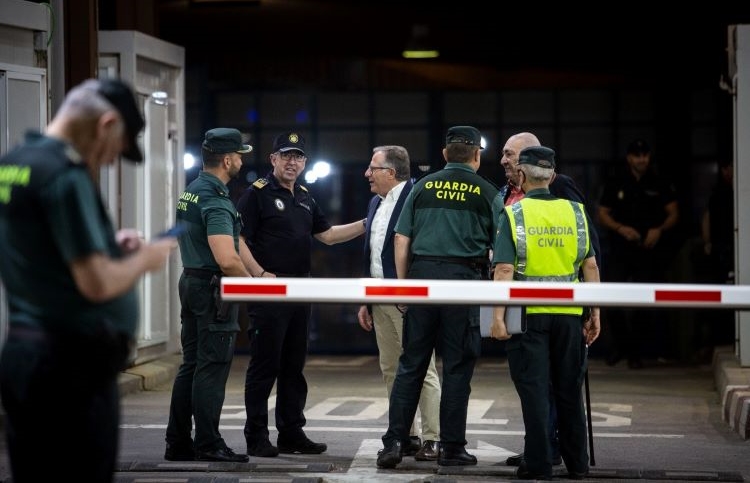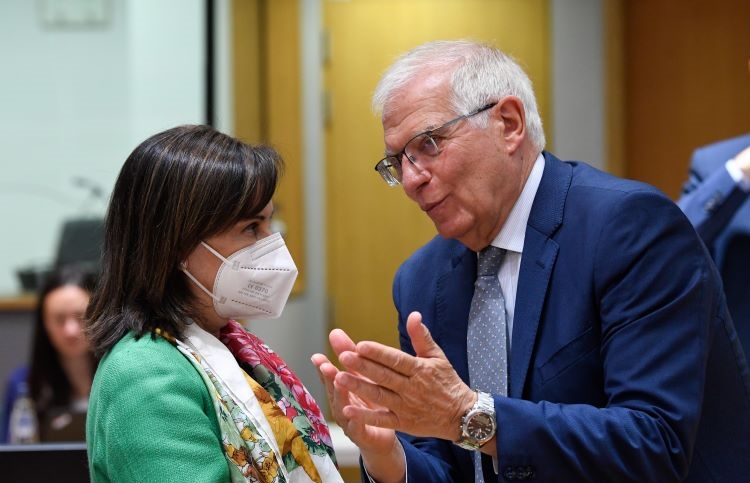The Diplomat
Thousands of people crossed the borders of Ceuta and Melilla yesterday on the first day of the reopening of the border crossings with Morocco, which had been closed for more than two years due to the pandemic and the bilateral diplomatic crisis.
During the press conference after the Council of Ministers, the Government spokeswoman, Isabel Rodríguez, declared yesterday that the reopening of the borders with Morocco in Ceuta and Melilla -which she described as an “important day”- had taken place “with absolute normality” thanks to the reinforcement of the security forces and bodies in both cities with the arrival of 220 new agents. This was not, however, the opinion of the Police and Civil Guard organizations, who complained that the reopening of the borders had been carried out without sufficient planning.
As announced last week by the Ministry of the Interior, the reopening has started “gradually”: at midnight on Monday and Tuesday the crossings of El Tarajal, in Ceuta, and Beni Enzar, in Melilla, were reopened for citizens and residents of the European Union and for those authorized to move in the Schengen area. In both categories, in order to access Ceuta and Melilla, it is essential to comply with the health requirements established by the Ministry of Health for these authorized land posts.
Likewise, as from Tuesday, May 31, legally recognized cross-border workers will be able to enter Spanish territory through the same crossing points, as well as those who, due to the expiration of the card accrediting them as such, have obtained a specific visa for Ceuta and Melilla. Within this gradual process, the Spanish-Moroccan working groups will determine the categories of persons and goods that will be able to access Ceuta and Melilla through the border with Morocco. In any case, the reopening should entail the reestablishment of customs controls in Melilla, paralyzed since October 2018, and the establishment of a customs office in Ceuta, which currently does not exist and whose creation would imply, in Moncloa’s view, the implicit recognition of Spanish sovereignty over the two autonomous cities.
What is certain is that the citizens and the media of the two Autonomous Cities lived the reopening as an event. “El Tarajal is a party of good neighborliness in the reopening,” headlined yesterday the newspaper Ceuta al Día. “Crowds at the Military Hospital to get vaccinated and be able to leave for Morocco,” wrote El Faro de Ceuta, the dean of the Ceuta press. “A historic day for Melilla: reopens the border after 26 months of closure,” headlined Melilla Hoy. “Melilla border opens before an expectant crowd”, highlighted El Faro de Melilla.
According to official data, almost a thousand people had left Melilla for Morocco, or vice versa, since the early hours of the day and almost 2,000 people and more than half a thousand vehicles had crossed the Ceuta border crossing in both directions (especially towards Morocco). “It is a satisfaction that many Melillenses can be reunited with their families after two years with the border closed”, declared the president of Melilla, Eduardo de Castro, who attended the opening of the border crossing.
The new president of the PP and president of the Xunta de Galicia, Alberto Núñez Feijóo, went to Ceuta yesterday to express his party’s commitment to “strict compliance with the Constitution and international treaties and laws”. In declarations to the local press, the Galician leader expressed his “happiness” for the return of normality, because “it is good for Ceuta and Melilla to reinstate relations with Morocco”, but criticized that the reopening had been carried out without “legal security” and without “adequate means”, for “not having worked on the revision of the Schengen Treaty” and for not having established the commercial customs in Melilla.
Last April 11, one day before Interior’s announcement, the Spanish and Moroccan Ministers of Foreign Affairs, José Manuel Albares and Nasser Bourita, took in Marrakech the “political decision” to reopen the border crossings within the framework of the roadmap agreed last April 7 in Rabat between the President of the Government, Pedro Sánchez, and the King of Morocco, Mohamed IV. The roadmap was the culmination of the diplomatic détente generated by the Spanish government’s surprising decision to approve the autonomy plan for Western Sahara, one year after the outbreak of one of the worst diplomatic crises between the two countries.







